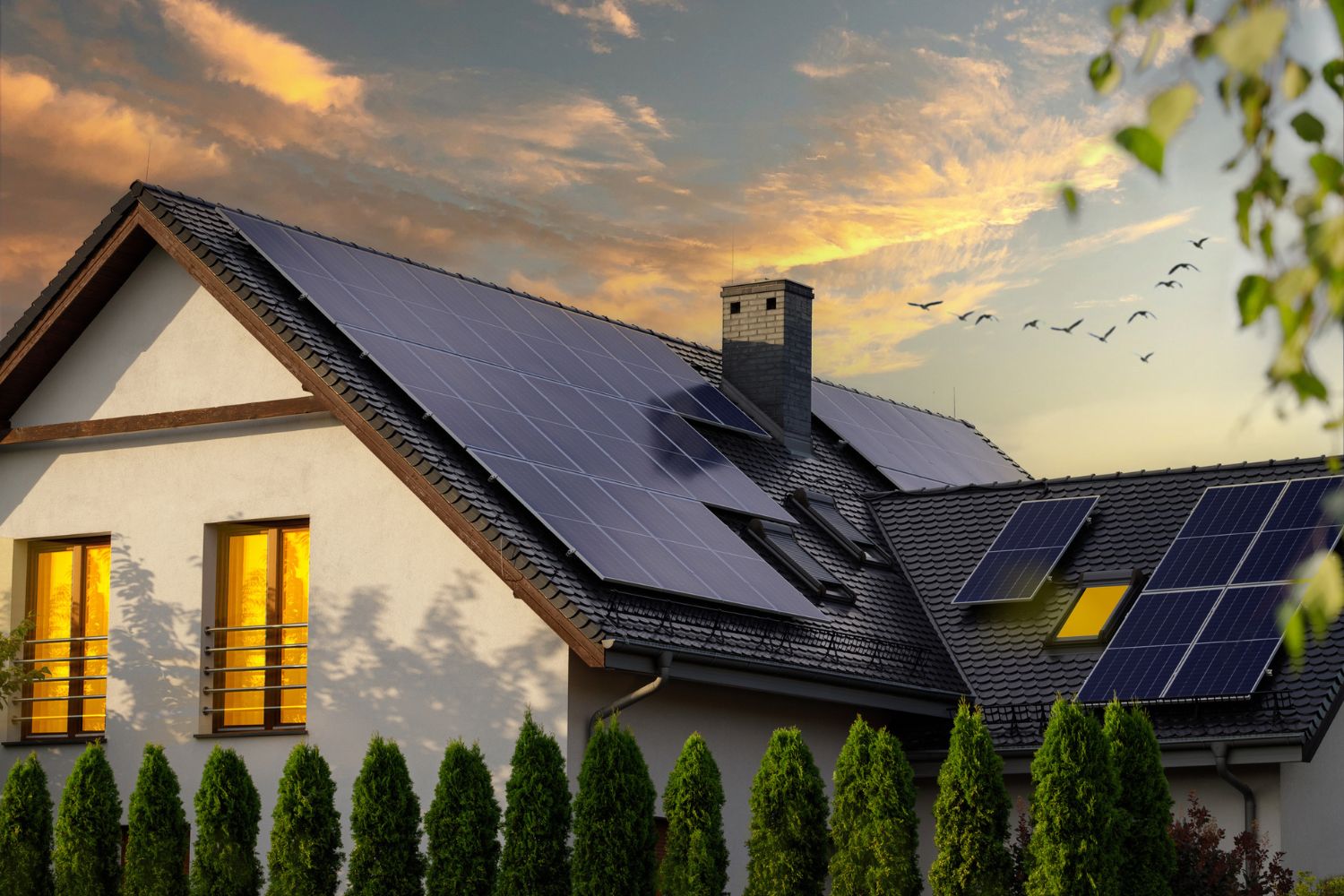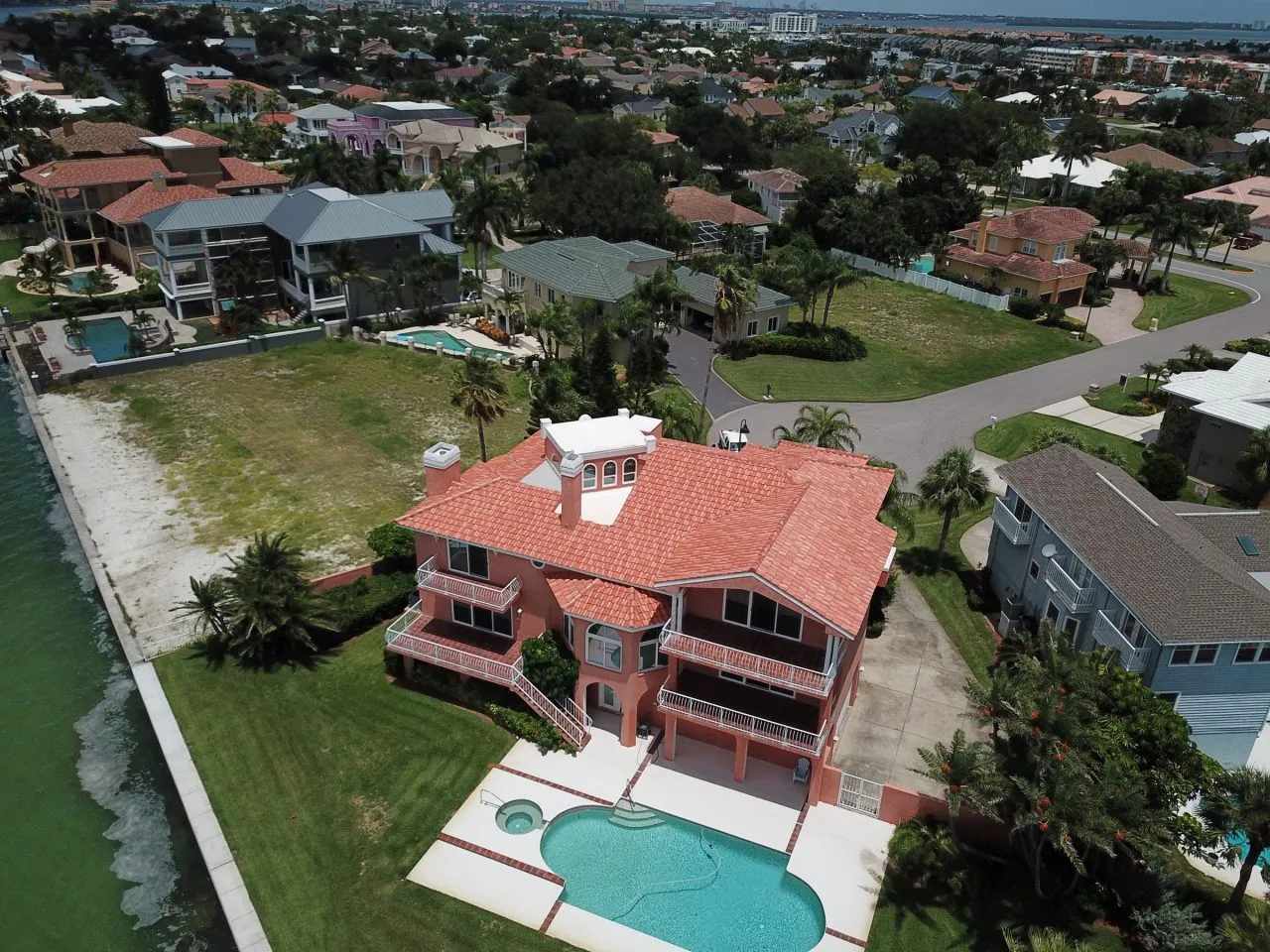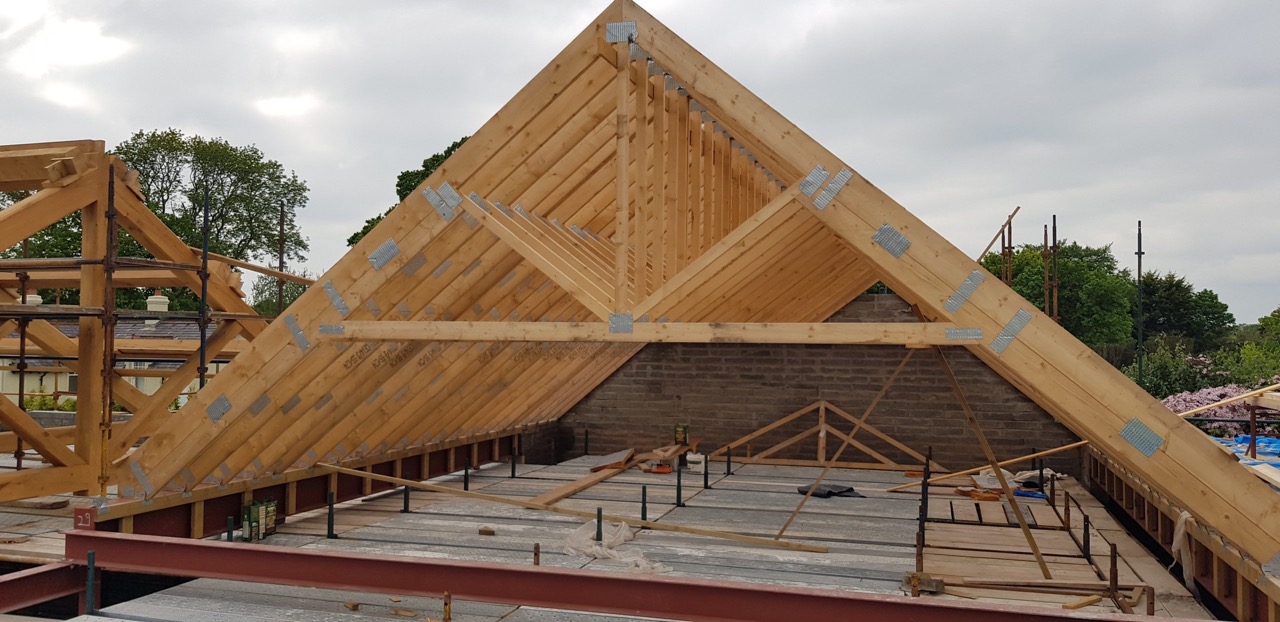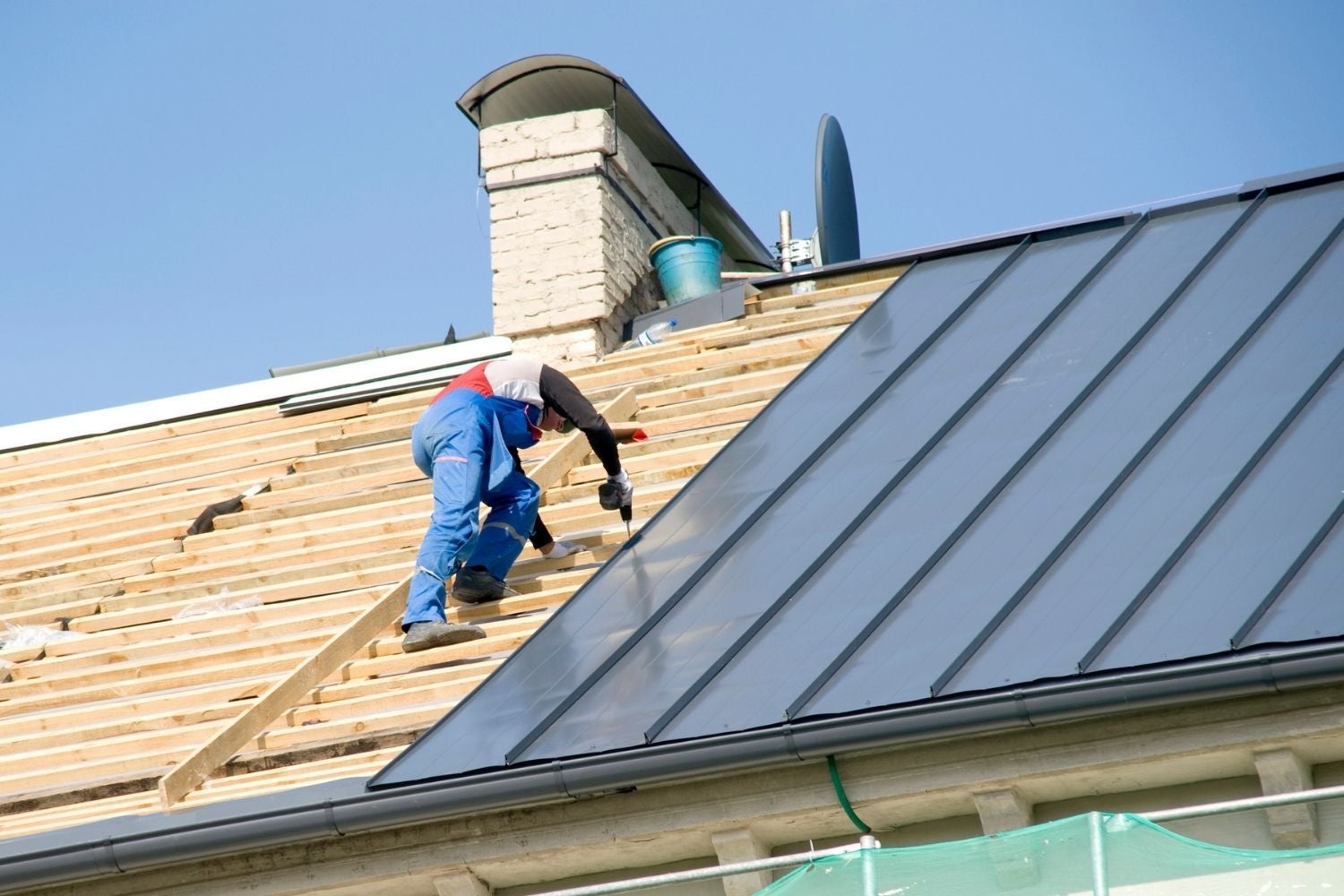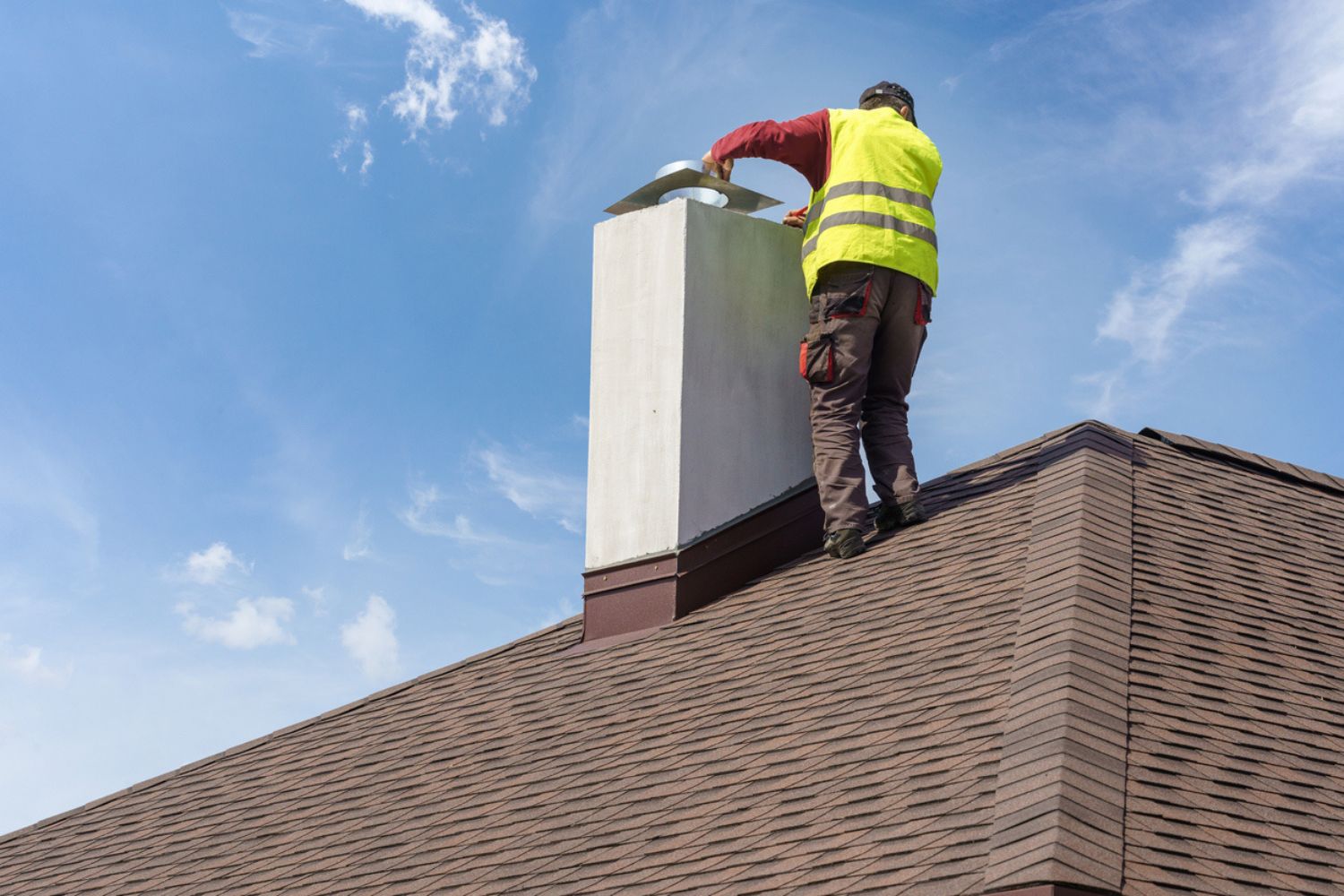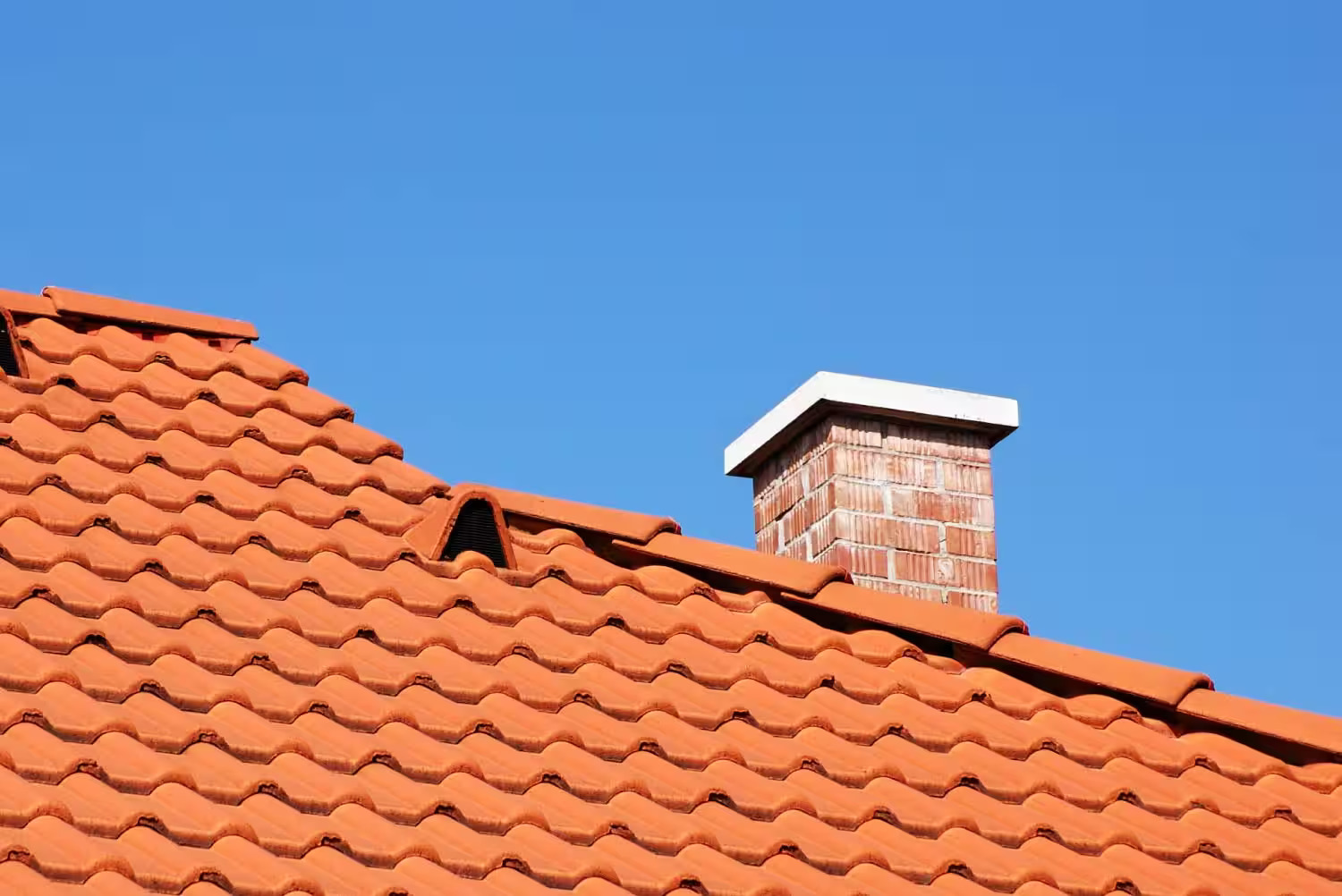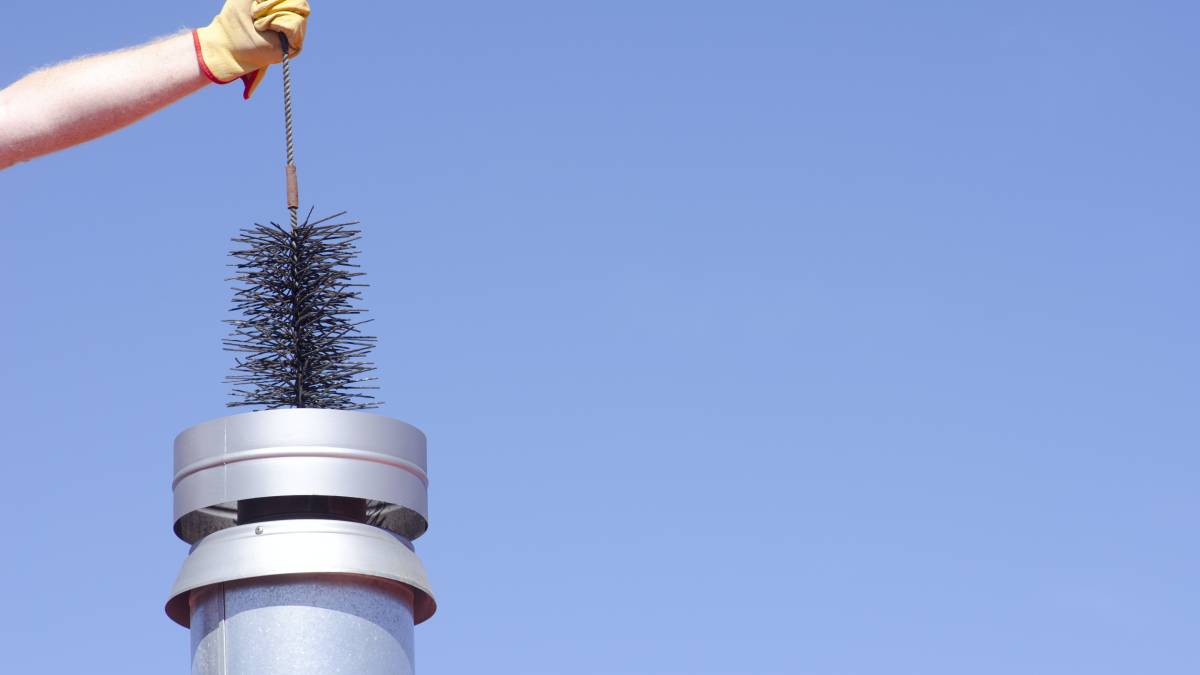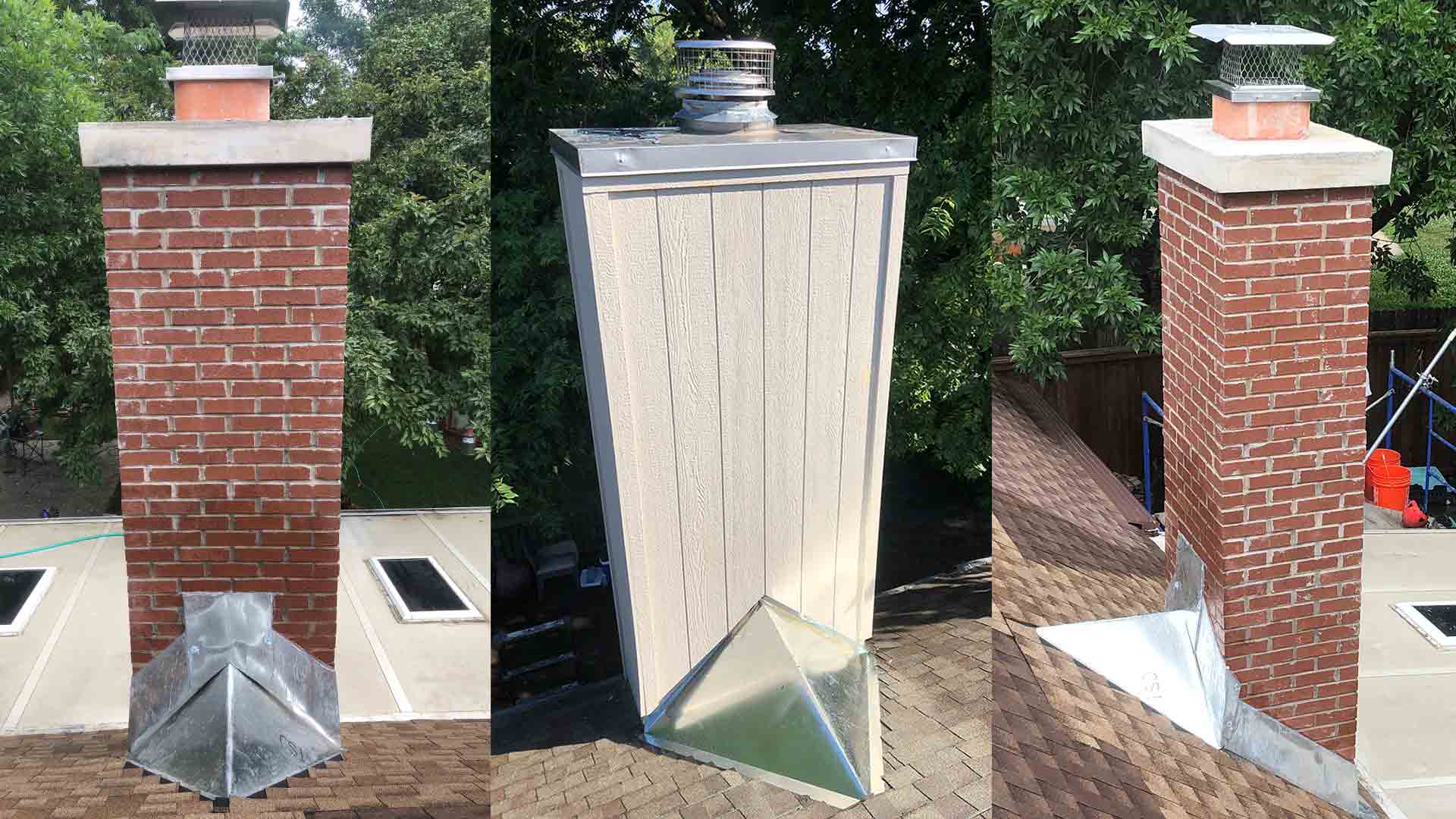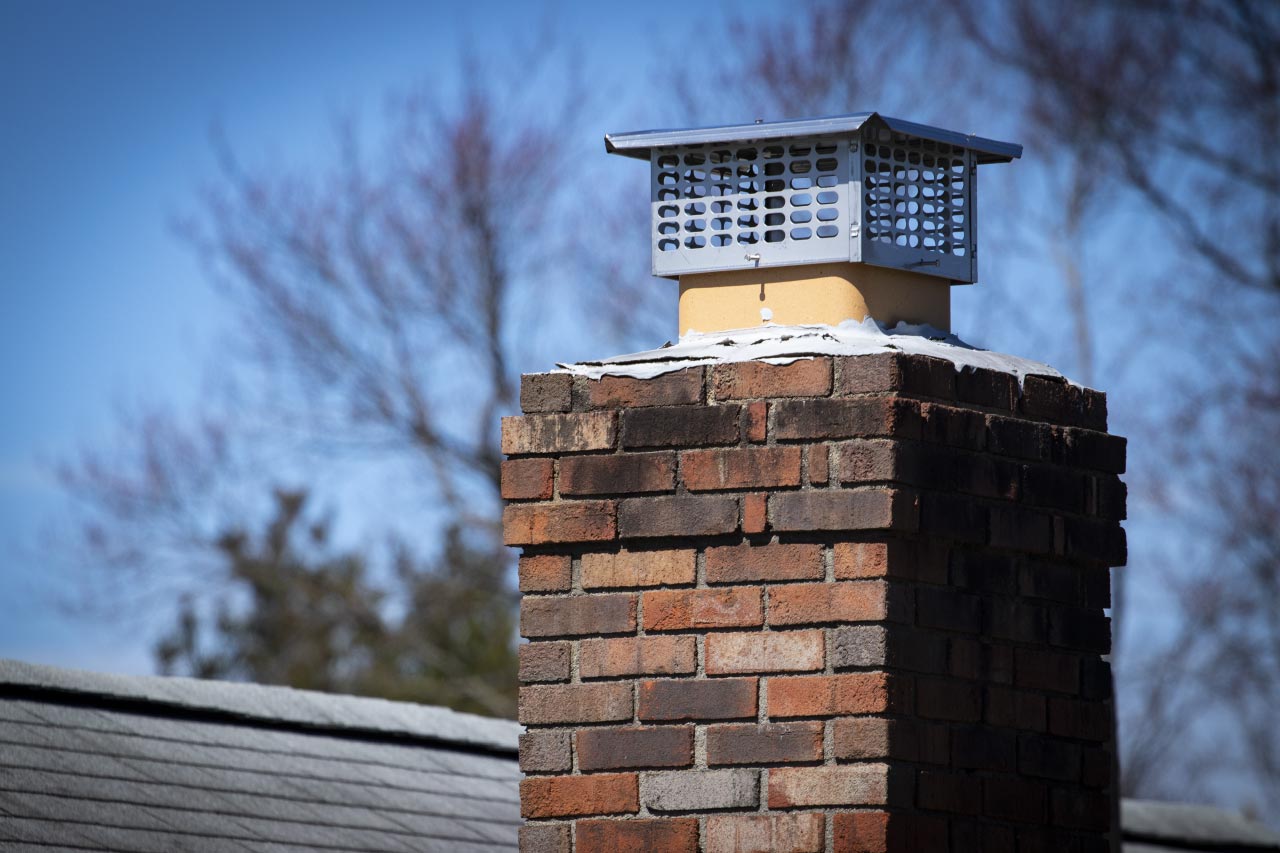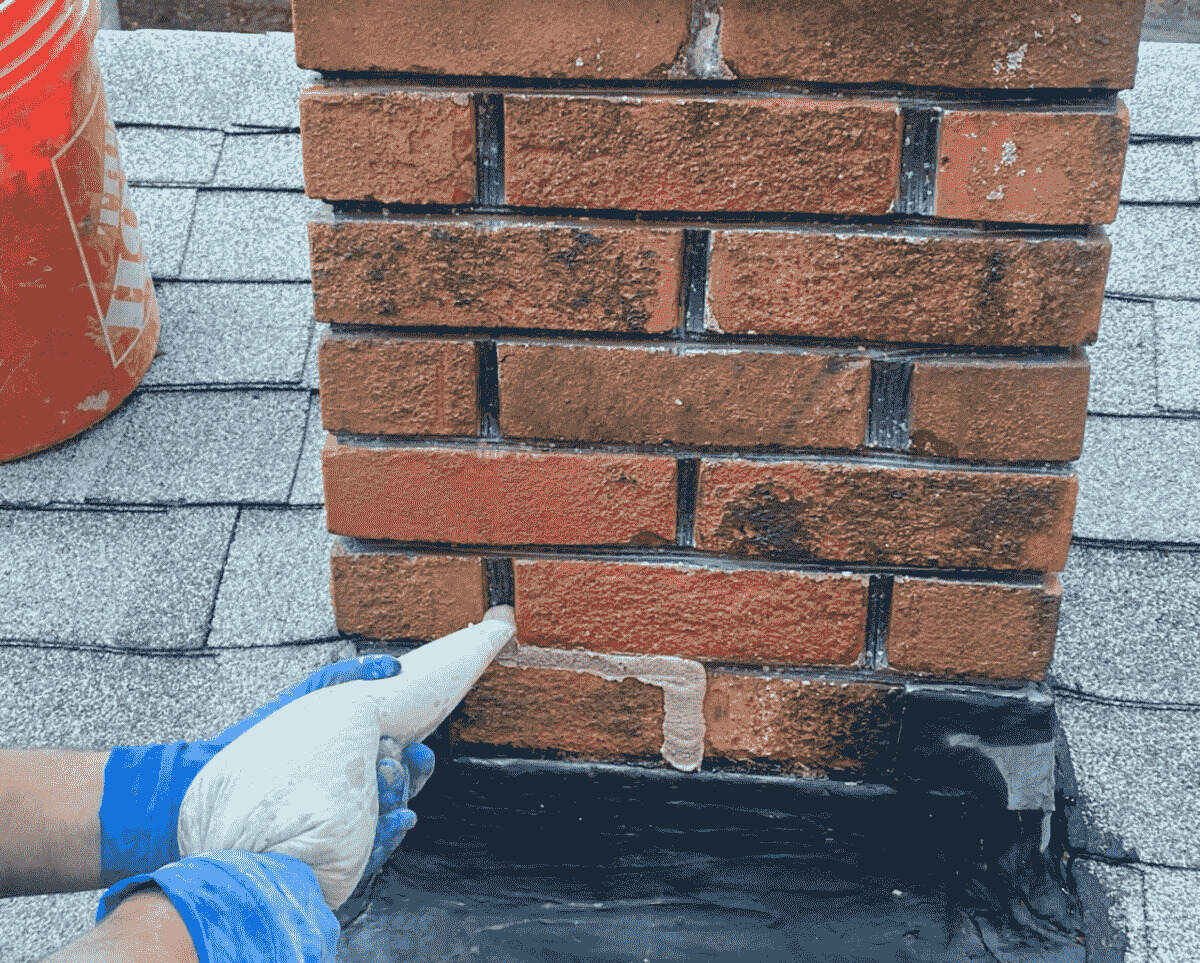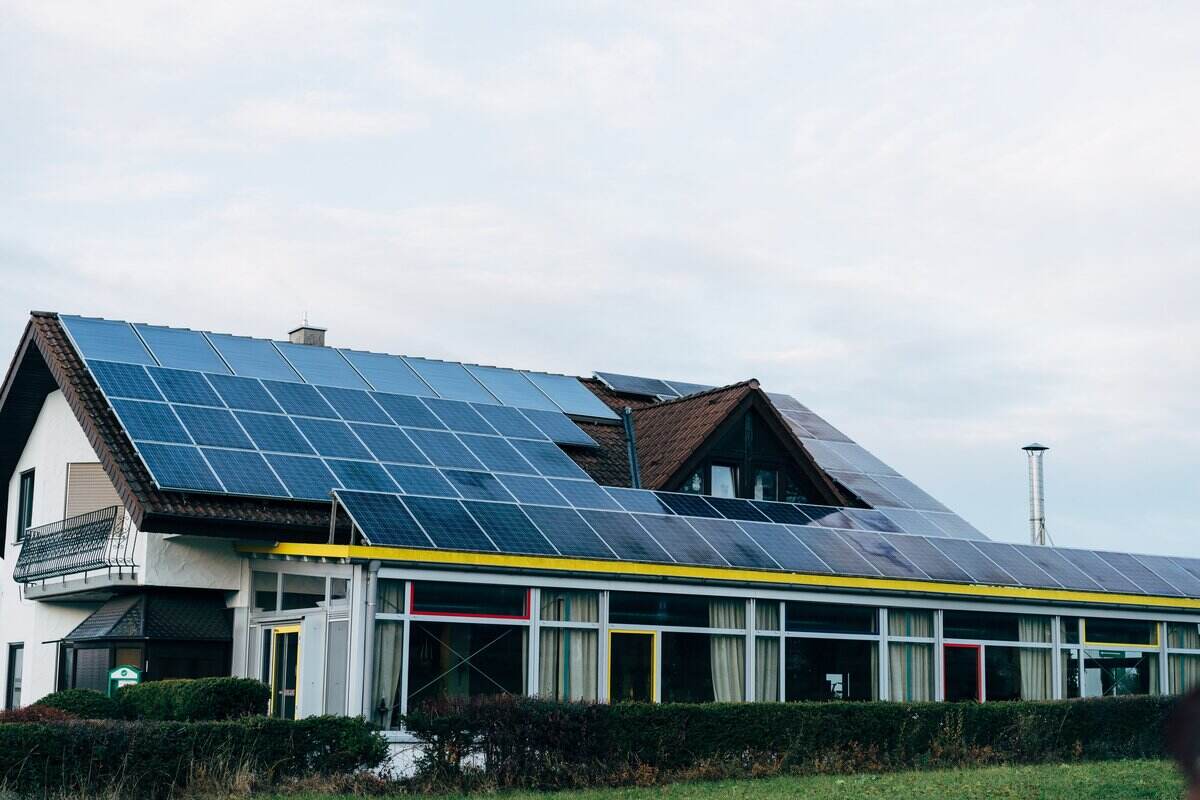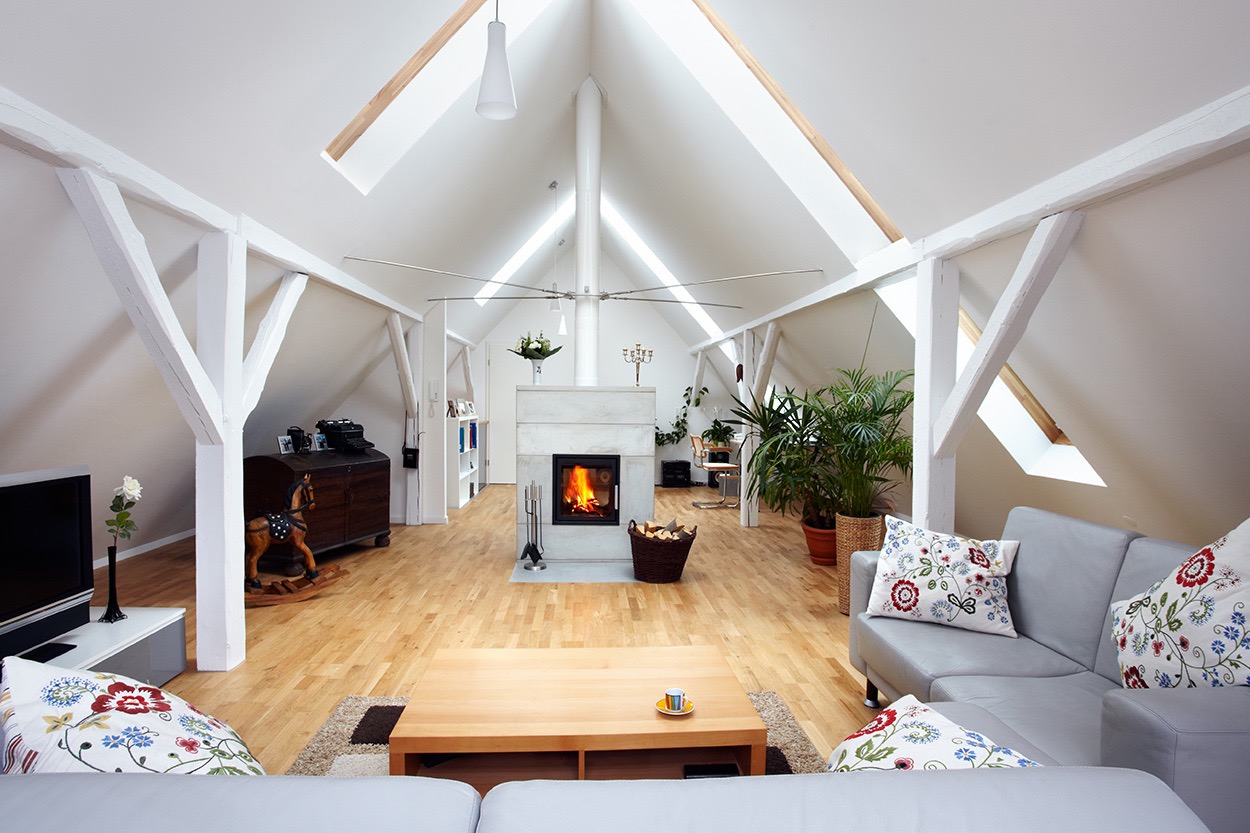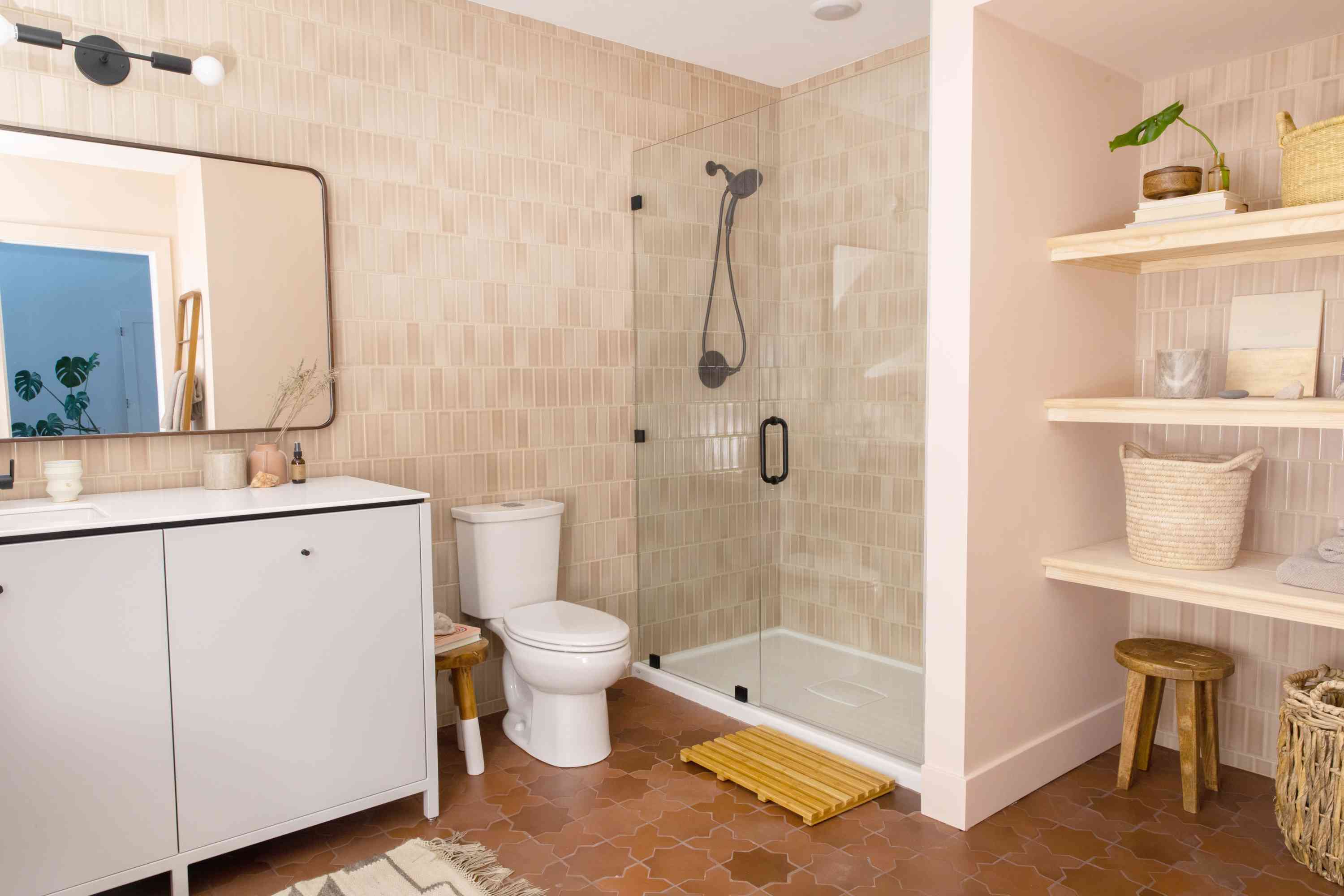Home>Home Maintenance>How Much Is Roof Repair Cost
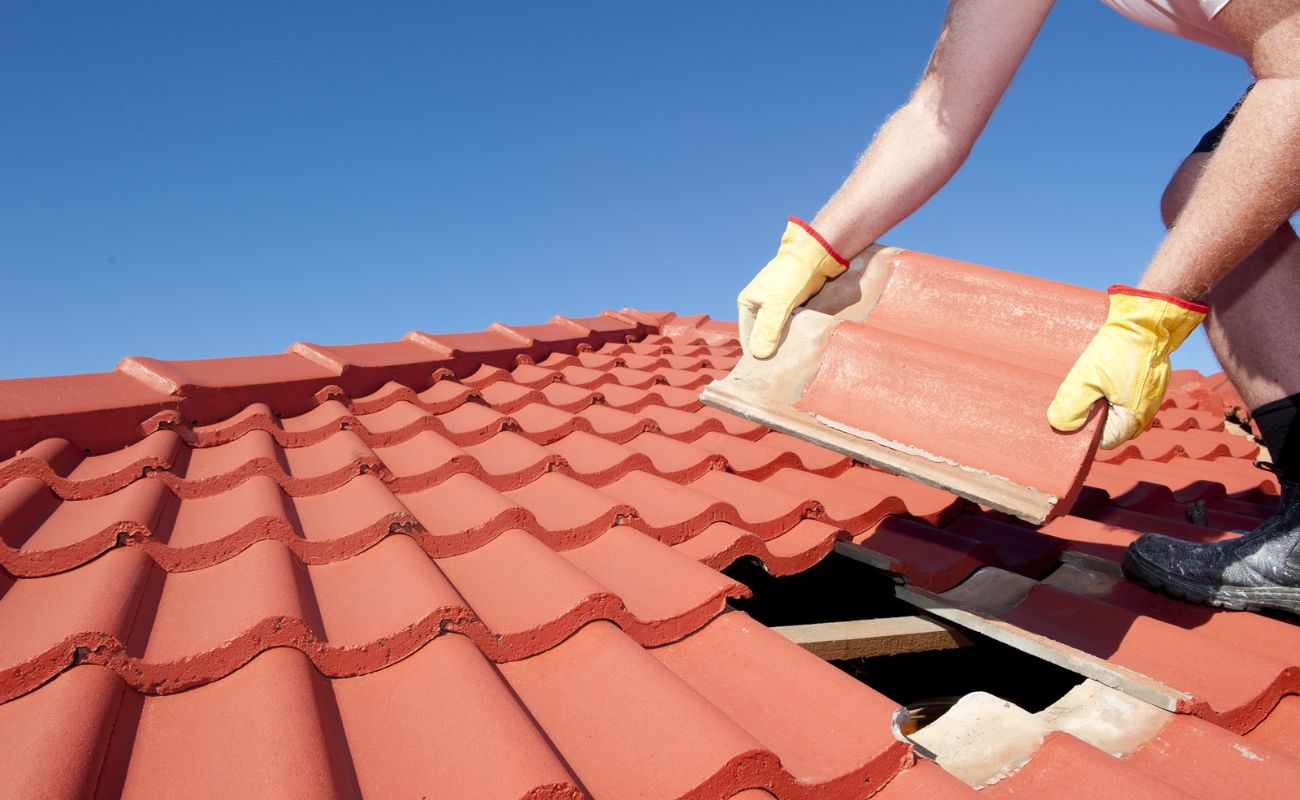

Home Maintenance
How Much Is Roof Repair Cost
Modified: March 6, 2024
Find out the average cost of roof repair for your home maintenance needs. Get a quote and compare prices from trusted roofing contractors.
(Many of the links in this article redirect to a specific reviewed product. Your purchase of these products through affiliate links helps to generate commission for Storables.com, at no extra cost. Learn more)
Introduction
When it comes to maintaining your home, one area that often requires attention is the roof. Over time, a roof can develop issues such as leaks, damaged shingles, or structural damage due to severe weather conditions. While regular maintenance can help prolong the life of your roof, there may come a time when you need to consider roof repair.
Roof repair is a vital part of home maintenance, as it ensures the integrity of your home’s structure and protects it from water damage. However, one of the main concerns for homeowners is the cost associated with roof repair. Understanding the factors that influence roof repair costs can help you plan your budget and make informed decisions.
There are several key factors that can impact the cost of roof repair. These include the extent of the damage, the type of roofing material used, and whether you choose to hire a professional contractor or opt for a do-it-yourself approach. Additionally, the cost of roof repair can vary depending on your location and the availability of materials and labor in your area.
In this article, we will explore the various factors that influence the cost of roof repair, common roof repair issues, the different types of roofing materials and their costs, the cost of labor, additional costs associated with roof repair, and whether it is more cost-effective to do the repairs yourself or hire a professional. We will also provide some tips on how to save money on roof repair.
By gaining a better understanding of the factors involved and the options available, you can make informed decisions about your roof repair needs and ensure that you are getting the best value for your money.
Key Takeaways:
- Roof repair costs are influenced by factors like damage severity, material type, and location. Prompt repairs and regular maintenance can prevent costly issues and save money in the long run.
- Balancing cost and quality is crucial in roof repair. DIY for minor repairs can save money, but professional expertise ensures safety and long-lasting results. Consider alternative materials and explore warranties for cost-effective solutions.
Read more: How Much Does Roof Trusses Cost
Factors Influencing Roof Repair Cost
When it comes to roof repair, there are several factors that can influence the overall cost. Understanding these factors can help you estimate the budget required for your roof repair project. Let’s take a closer look at the key factors that influence roof repair costs:
- Extent of the damage: The severity and extent of the damage to your roof will significantly impact the cost of repair. Minor repairs, such as patching up a few damaged shingles, will be relatively inexpensive. On the other hand, extensive damage that requires replacing large sections of the roof or even the entire roof can escalate the cost.
- Type of roofing material: The type of roofing material used on your roof will also affect the cost of repair. Different materials have varying costs, with some being more expensive to repair or replace than others. For example, asphalt shingles are generally more affordable to repair compared to metal or slate roofs.
- Accessibility: The accessibility of your roof can impact the cost of repairs. If your roof is easily accessible and doesn’t require any additional equipment or special precautions, the repair costs will likely be lower. However, if your roof is steep or difficult to access, the repair team may need to use specialized equipment, which can increase the overall cost.
- Location: The location of your home can also influence the cost of roof repair. Labor and material costs can vary depending on your geographic location. Areas with a high cost of living or those with limited availability of roofers and materials may have higher repair costs.
- Permit requirements: Some local authorities may require permits for certain types of roof repairs or replacements. Acquiring these permits can involve additional costs, which should be taken into consideration when estimating the overall repair expenses.
- Underlying structural issues: In some cases, roof damage may be a symptom of underlying structural issues, such as weak or damaged support beams. Repairing these structural issues along with the roof repairs can significantly increase the cost.
- Seasonal factors: The time of year can also impact the cost of roof repair. Contractors may have higher demand during specific seasons or times of the year, which can result in increased labor costs. Additionally, weather conditions may also affect the time required to complete the repairs, which can influence the overall cost.
These factors can all contribute to the overall cost of roof repair. It’s important to assess these variables and consult with a professional roofer to get an accurate estimate for your specific repair needs. By considering these factors, you can make informed decisions about your roof repair project and ensure that you are prepared for the associated costs.
Common Roof Repair Issues
Roofing problems can arise due to various factors such as age, weather conditions, poor installation, or lack of maintenance. Recognizing common roof repair issues can help you identify potential problems and address them before they escalate. Here are some of the most common roof repair issues:
- Leaking roofs: A leaking roof is one of the most common issues homeowners face. Leaks can occur due to damaged or missing shingles, worn-out flashing, cracked vents, or improper installation. It is important to address leaks promptly to prevent water damage and further deterioration of the roof structure.
- Broken or loose shingles: Shingles can become damaged or loose over time due to exposure to harsh weather conditions, such as strong winds or hail. Broken or missing shingles can leave your roof vulnerable to water penetration and should be promptly replaced to maintain the integrity of your roof.
- Mold and moss growth: Moisture retention on the roof’s surface can lead to the growth of mold, moss, or algae. Besides being unsightly, these organisms can deteriorate the roof material and compromise its integrity. Regular cleaning and maintenance can help prevent the growth of mold and moss and extend the life of your roof.
- Damaged flashing: Flashing is a thin, metal strip used to seal roof joints and prevent water penetration. Over time, the flashing can become damaged or corroded, potentially leading to leaks. Proper maintenance and repair of flashing are essential to maintain a watertight and durable roof.
- Roof punctures or penetration: Roof punctures can occur due to falling branches, hail, or other impact. These punctures can lead to leaks and further damage if not addressed promptly. Repairing the punctured area and ensuring proper sealing is crucial to prevent water infiltration.
- Sagging roof: A sagging roof is a serious issue that requires immediate attention. It can indicate structural damage or weakened support beams. A professional assessment is necessary to determine the cause and extent of the problem and provide appropriate repairs to restore the roof’s structural integrity.
- Gutter issues: Clogged or damaged gutters can lead to water overflow, causing water to seep into the roof and potentially damage the underlying structure. Regular gutter cleaning and maintenance are necessary to ensure proper water drainage and prevent roof-related issues.
Identifying these common roof repair issues is the first step in maintaining a healthy and functional roof. Regular inspections and proactive maintenance can help mitigate these issues and extend the lifespan of your roof. It is advisable to consult with a professional roofer for a thorough assessment and appropriate repairs if you encounter any of these problems.
Types of Roofing Materials and Cost
When it comes to roof repair or replacement, the choice of roofing material is an important decision. There are various types of roofing materials available, each with its own benefits, durability, and cost. Understanding the different options can help you make an informed choice based on your budget and specific requirements. Here are some common types of roofing materials and their costs:
- Asphalt shingles: Asphalt shingles are the most popular and affordable roofing material. They are known for their durability, ease of installation, and wide range of colors and styles. The cost of asphalt shingles can range from $70 to $120 per roofing square (100 square feet).
- Metal roofing: Metal roofing offers longevity and durability. It is resistant to fire, pests, and extreme weather conditions. Metal roofs can be made from various materials such as steel, aluminum, or copper. The cost of metal roofing typically ranges from $120 to $900 per roofing square.
- Slate: Slate roofs are highly durable and known for their elegant appearance. Slate is a natural stone material that can last for over a century when properly maintained. However, slate roofs are expensive, with costs ranging from $800 to $1,600 per roofing square.
- Wood shingles/shakes: Wood shingles or shakes provide a unique and natural look to a roof. They are typically made from cedar, redwood, or pine. Wood shingles are more expensive than asphalt, with costs ranging from $400 to $700 per roofing square.
- Clay or concrete tiles: Clay or concrete tiles offer durability, aesthetic appeal, and excellent insulation properties. They are often seen in Mediterranean or Spanish-style homes. The cost of clay or concrete tiles can range from $200 to $800 per roofing square.
- Composite roofing: Composite roofing materials are a blend of different components, such as recycled plastics and rubber. They offer the look of natural materials while providing added durability and longevity. The cost of composite roofing typically ranges from $300 to $600 per roofing square.
It’s important to note that these cost ranges are approximate and can vary depending on factors such as location, roof complexity, and the specific brand or manufacturer. Additionally, labor costs for installation should be factored into the overall cost estimate.
When selecting a roofing material, it’s essential to consider factors such as durability, maintenance requirements, energy efficiency, and the architectural style of your home. Consulting with a professional roofer can provide valuable guidance and help you choose the best roofing material that suits your needs and budget.
Cost of Labor
When it comes to roof repair, labor costs play a significant role in the overall expense. Hiring professional roofers ensures that the job is done effectively and efficiently, but it does come with a price. The cost of labor for roof repair can vary depending on several factors:
- Roofing company: The reputation and experience of the roofing company can influence labor costs. Established and reputable roofing companies may charge higher rates due to their expertise and quality of work.
- Location: Labor costs can vary depending on your geographical location. Areas with a higher cost of living generally have higher labor rates.
- Roof complexity: The complexity of the roof repair project can also impact labor costs. A simple repair job, such as replacing a few damaged shingles, may require less time and labor compared to a complete roof replacement or extensive structural repair.
- Accessibility: If your roof is difficult to access or requires special equipment or safety measures, it may add to the labor costs. Steep roofs, multiple levels, or intricate roof designs may require additional time and effort from the roofers.
- Timeframe: Urgent or time-sensitive repairs may incur higher labor costs. If you require immediate attention or if the repair needs to be completed within a specific timeframe, expedited services may come at a premium.
The cost of labor for roof repair is typically measured in terms of per square or per hour basis. Labor costs per roofing square can range from $80 to $150, depending on the factors mentioned above. It is important to note that these are approximate estimates, and the actual cost may vary based on the specifics of your project.
While labor costs may seem significant, it is crucial to prioritize quality and expertise when choosing roof repair professionals. Hiring experienced and reputable roofers ensures that the job is done correctly, minimizing the chances of costly mistakes or future repairs.
It is recommended to obtain multiple quotes from different roofing companies, review their credentials and customer reviews, and carefully consider the scope of work before making a decision. By striking a balance between cost and quality, you can ensure a successful roof repair project that provides long-lasting results.
Read more: How Much Does A Shingle Roof Cost
Additional Costs Associated with Roof Repair
When planning for a roof repair project, it’s important to consider not only the cost of materials and labor but also any additional expenses that may arise. These additional costs can vary depending on the specific circumstances of the repair job. Here are some common additional costs associated with roof repair:
- Roof inspection: Before starting any repairs, it’s essential to have a professional roofer conduct a thorough inspection of your roof. This inspection helps identify hidden issues and potential problems that may require additional repairs. The cost of a roof inspection can range from $200 to $500.
- Permits: Depending on local regulations, you may need to obtain permits for certain types of roof repairs or replacements. The cost of permits can vary depending on your location and the complexity of the project. It’s important to check with your local building department to determine the permit requirements and associated costs.
- Water damage repair: In some cases, roof leaks can lead to water damage inside your home. If there is any water damage to the ceiling, walls, or other areas, you may need to allocate a budget for repairing the interior damage. The cost of water damage repair will depend on the extent of the damage and the necessary repairs.
- Structural repairs: If the roof damage extends beyond the surface and affects the underlying structure, additional structural repairs may be necessary. This can include repairing or replacing damaged support beams, rafters, or decking. The cost of these repairs will depend on the extent of the damage and the complexity of the structural work required.
- Temporary protective measures: In cases where immediate repairs cannot be performed, temporary protective measures may be necessary to prevent further damage. This can include tarping or securing the damaged area to prevent water infiltration. The cost of temporary protective measures will depend on the size and complexity of the area that needs to be covered.
- Cleanup and disposal: After the roof repair is completed, there may be a need for cleanup and disposal of debris, old materials, and other waste. The cost of cleanup and disposal will vary depending on the amount of debris and the services required.
It’s important to factor in these additional costs when budgeting for your roof repair project. Consulting with a professional roofer and obtaining detailed estimates will help you understand the overall cost and plan accordingly.
Keep in mind that while these additional costs may increase the initial investment, addressing all necessary repairs and potential issues ensures the longevity and functionality of your roof, ultimately saving you money in the long run.
Get multiple quotes from different roofing companies to compare costs. Consider the materials needed, labor, and any additional repairs. Don’t just go with the cheapest option, make sure to choose a reputable and experienced contractor for quality work.
DIY vs Professional Roof Repair
When it comes to roof repair, one of the decisions homeowners must make is whether to tackle the project themselves or hire a professional roofing contractor. Both options have their pros and cons, and the choice depends on several factors. Let’s explore the differences between DIY and professional roof repair:
DIY Roof Repair:
Many homeowners are tempted to take a do-it-yourself approach to save money on roof repairs. DIY roof repair can be a feasible option for minor issues or those with experience in roofing projects. Here are some considerations for DIY roof repair:
- Cost savings: DIY roof repair can save you money on labor costs, especially for minor repairs. You have the flexibility to choose materials within your budget and avoid paying for professional services.
- Learning experience: Repairing your roof yourself can be a valuable knowledge-building experience. It allows you to understand your roof better and gain basic roofing skills.
- Control and timing: By handling the repairs yourself, you have full control over the timeline and execution of the project. You can work at your own pace and address the repair when it is most convenient for you.
Professional Roof Repair:
While DIY roof repair has its advantages, there are situations where hiring a professional roofing contractor is the best choice. Here are some reasons to consider professional roof repair:
- Expertise and experience: Professional roofers have the necessary skills, knowledge, and experience to accurately assess and address roof issues. They can ensure that repairs are done correctly, meeting industry standards and regulations.
- Quality workmanship: Professional roofers use premium materials and have access to specialized tools and equipment, resulting in higher quality repairs. They can identify underlying issues that may go unnoticed by homeowners and provide comprehensive solutions.
- Safety: Roof repair can be hazardous, especially when working at heights or dealing with potential structural issues. Professional roofers have the training and safety protocols in place to minimize the risk of accidents or injuries.
- Warranty and insurance: Reputable roofing contractors often provide warranties on their work and have insurance coverage. This offers peace of mind, knowing that you are protected should any issues arise after the repair is complete.
It’s important to assess the complexity of the repair, your skill level, and the potential risks involved when deciding whether to tackle the project yourself or hire a professional. In some cases, DIY repairs may be suitable for minor issues, such as replacing a few shingles. However, for more extensive repairs or structural issues, it is highly recommended to hire a professional roofing contractor to ensure a safe and effective repair.
Ultimately, the goal is to prioritize the long-term integrity and functionality of your roof. Consulting with a professional roofer can provide valuable insights and help you make an informed decision based on your specific circumstances.
Read more: How Much Does Roof Maxx Cost
Tips for Saving Money on Roof Repair
Roof repair is an essential aspect of home maintenance, but it can sometimes be a costly endeavor. However, there are several ways you can save money on roof repair without compromising on the quality of the work. Here are some helpful tips to help reduce your roof repair expenses:
- Regular maintenance: Implementing a routine maintenance schedule can help prevent major roof problems. Regularly inspecting your roof and addressing minor issues promptly can help avoid costly repairs down the line.
- Act quickly: If you notice any signs of damage or leaks, act quickly. Timely repair can prevent the problem from worsening and help avoid additional damage that could increase the cost of repairs.
- Obtain multiple quotes: It’s important to get estimates from multiple roofing contractors. Compare the prices, services offered, and reputation of the contractors to find the best value for your money.
- Consider alternative materials: Explore different roofing material options to find a cost-effective yet durable solution. Compare the lifespan, maintenance requirements, and upfront costs of different materials to make an informed decision that fits your budget.
- DIY when appropriate: For minor repairs or simple tasks like replacing a few shingles, consider doing it yourself if you have the necessary skills and tools. However, be cautious not to take on complex or potentially dangerous projects that require professional expertise.
- Maintain good attic ventilation: Proper attic ventilation helps control temperature and moisture levels, which can significantly impact the lifespan of your roof. A well-ventilated attic can prevent moisture buildup, reducing the risk of mold, deterioration, and the need for premature roof repairs.
- Explore warranty options: When selecting roofing materials or hiring a roofing contractor, inquire about warranties. A good warranty can provide coverage against manufacturer defects and installation issues, potentially saving you money on future repairs.
- Consider roof overlays: In some cases, if the existing roof is in relatively good condition, it may be possible to overlay a new roof on top of it instead of a complete tear-off. This can save money on labor and disposal costs. However, consult with a professional roofer to ensure this option is suitable for your specific situation.
- Stay proactive: Regular roof maintenance, addressing minor issues promptly, and staying proactive with your roof care can save you money in the long run. By staying ahead of potential problems, you can minimize the need for major repairs and extend the life of your roof.
It’s important to note that while saving money is essential, compromising on the quality of the repair or materials can lead to additional expenses in the future. Balancing cost savings with long-term durability and functionality should be the ultimate goal when it comes to roof repair.
Consulting with a professional roofer is always recommended, as they can provide expert advice and guide you on the best options to save money without sacrificing the integrity of your roof.
Conclusion
Maintaining a healthy and functional roof is vital for the overall integrity and protection of your home. While roof repair costs can vary depending on factors such as the extent of damage, roofing materials, labor, and additional expenses, there are ways to navigate the process and save money without compromising on quality.
Understanding the factors that influence roof repair costs, such as the extent of damage, type of roofing material, accessibility, location, and permits, is crucial in determining the overall expense. By considering these factors, you can plan your budget accordingly and make informed decisions.
Common roof repair issues, such as leaks, broken shingles, mold growth, and damaged flashing, should be promptly addressed to prevent further damage and costlier repairs. Regular inspections and proper maintenance can help identify and mitigate these issues before they escalate.
Choosing the right roofing material can have a significant impact on the cost of repair. Asphalt shingles are the most affordable option, while materials like slate and metal can be more expensive but offer greater durability and longevity.
The cost of labor for roof repair depends on factors such as the roofing company, location, roof complexity, accessibility, and timeframe. It’s important to balance cost with expertise and quality when deciding between DIY repair and hiring a professional roofing contractor.
Additional costs associated with roof repair, such as inspections, permits, water damage repair, structural repairs, temporary protective measures, and cleanup, should be taken into account when budgeting for the project.
By following tips such as regular maintenance, timely repairs, obtaining multiple quotes, considering alternative materials, and exploring warranties, you can save money on roof repair without compromising the quality of the work. Staying proactive and addressing minor issues promptly can also help prevent major roof problems and costlier repairs in the future.
In conclusion, prioritizing roof maintenance and repair is essential in preserving the integrity, functionality, and longevity of your home. By understanding the factors influencing roof repair costs and implementing cost-saving measures, you can ensure that your roof remains in top condition without breaking the bank.
Frequently Asked Questions about How Much Is Roof Repair Cost
Was this page helpful?
At Storables.com, we guarantee accurate and reliable information. Our content, validated by Expert Board Contributors, is crafted following stringent Editorial Policies. We're committed to providing you with well-researched, expert-backed insights for all your informational needs.
